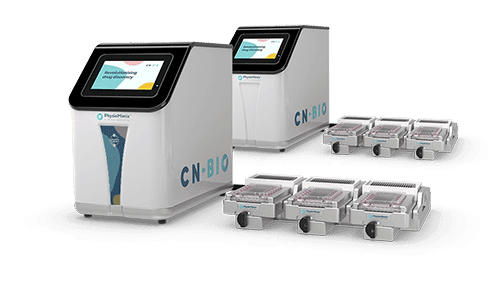London Organ-on-Chip specialist CN Bio today announced it has secured an exclusive license to technology from the Massachusetts Institute of Technology for Organ-on-Chip systems which connect human tissues from up to 10 organs.
CN Bio participated with MIT on a US$26M DARPA federal contract to develop a Human-Body-on-Chip system. In an article published in Nature Scientific Reports in March 2018, MIT researchers and CN Bio announced the successful final milestone of this program to bring 10 organs together on a chip.
CN Bio CEO Dr David Hughes said:
Scientists currently lack adequate means to determine whether a new drug to treat one organ is likely to have adverse effects on another. At present much of this information comes from poorly predictive animal studies. Many costly drug failures take place because we lack the ability to generate human relevant data in the laboratory – this is exactly the data which our PhysioMimix Multi-Organ-on-Chip studies will provide.
These MIT patents extend our portfolio to cover multiorgan systems. We believe multiorgan safety and efficacy studies can bridge a serious gap in drug development between simple preclinical in vitro tests and difficult and expensive animal testing.
By recreating human organ interactions on CN Bio’s smartphone sized chip, scientists can measure the effects of drugs or other chemicals on different tissues of the body.
The CN Bio team is building the multiorgan consumable plates to be compatible with its award-winning PhysioMimix benchtop Organ-on-Chip system.
PhysioMimix is a printersized device with open-well plates where micro-tissues that mimic the structure and function of human organs and tissues can be cultured. Linking two or more of these miniature systems using microfluidics means multiple organs interact and respond to stimuli.
Launched in May 2018, PhysioMimix is being used by pharmaceutical and consumer goods companies globally and by the US Food and Drug Administration (FDA) to conduct Organ-on-Chip assays.
Scientists use the device to culture microtissues that mimic the structure and function of human organs and run a wide range of assays and experiments. These provide essential data on how a new drug, food additive, cosmetic or chemical will affect the key organs in our bodies.
The multiorgan patents have been licensed from the MIT School of Biological Engineering, laboratory of Professor Linda Griffith.
CN Bio expects multiorgan consumable plates for PhysioMimix system to be available later in 2019. Early multi-organ studies will provide data on how
drugs and chemicals interact within a gut-liver or lung-liver systems, two in-demand models for understanding drug metabolism and therapeutic safety respectively.

